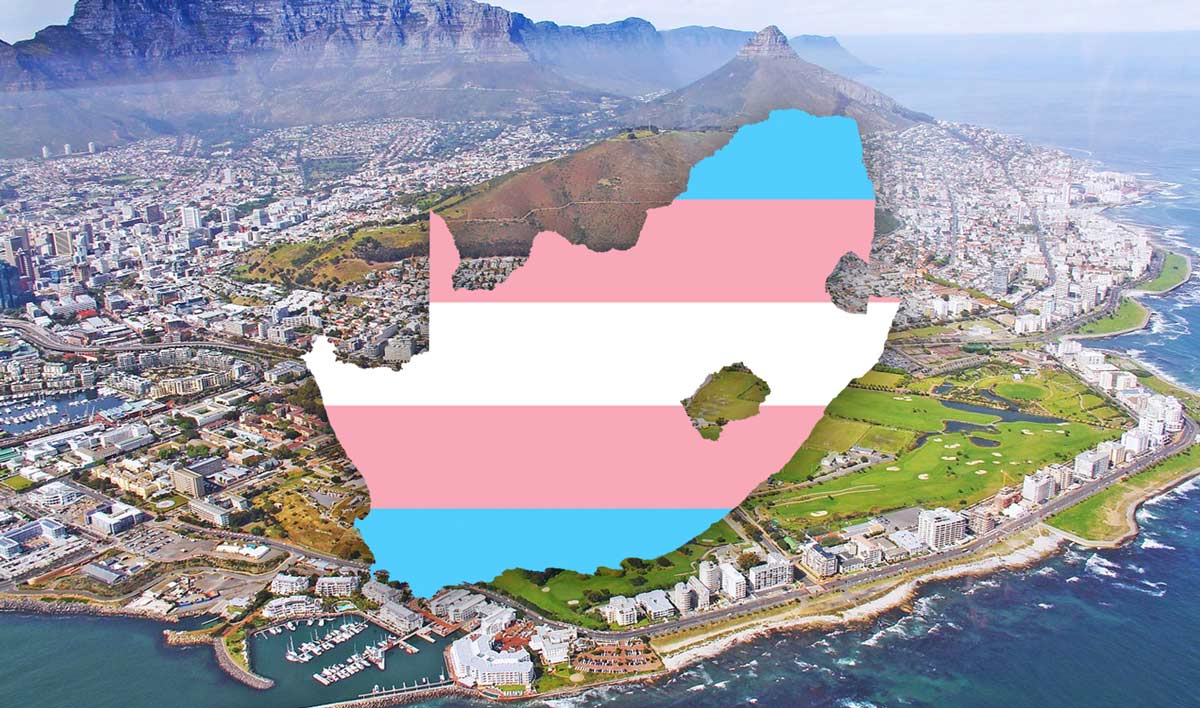Trans in South Africa: A Personal Account on Medical Transition

If you’re a trans person or an ally closely associated with a trans person, you likely know that transition is both an emotionally and financially taxing process.
That said, the state or country in which you live can have a huge impact on how easy or challenging that process can be. Depending on where you are transitioning, the support offered by your country’s healthcare system can drastically affect the viability of medical transition. I wanted to share my experiences (so far) as a 21-year-old trans guy in transition in South Africa, and how my location has impacted my journey in obtaining gender-affirming care.
South Africa’s healthcare system for trans folks
As a developing country, South Africa’s healthcare system is drastically underfunded for the overwhelming number of people who rely on it.
Because of the large number of people who need the public system to meet their basic healthcare needs, trans health is a non-event. By this, I mean: should you have to use this system for hormone replacement therapy (HRT), the waiting list is about 5 years long. Obtaining support for gender-affirming surgery is even more challenging. Should you wish to have top surgery through the public system, for example, the wait is 25 years. This is largely because any transition-related surgery is deemed to be cosmetic, and thus only one procedure is performed annually.
I am in the very fortunate position to be able to afford private care with the help of my parents. At first, this made me think that my medical transition would be a fairly swift process. I’ve now learned this is not the case.
Finding competent providers
After having phoned what seemed like 50 endocrinologists, I finally found Dr. Debbie Gordon. In my country, there are very few health care providers who have experience with transgender patients. She was the first person out of so many doctors that I contacted who agreed to treat me and had treated at least one trans person prior. Once we made contact, my first appointment with her required a three-month waiting period, and each appointment came with an out-of-pocket expense of R1500 (about $100 USD). Not only was this a long time to wait for care, but for folks with limited resources, getting and keeping a hormone prescription is simply out of reach.
After I had been on testosterone for about 10 months, Dr. Gordon told me I would be eligible for top surgery. I was extremely excited and thought that because she had previously helped a trans patient, she might be able to help connect me with an experienced surgeon. Once again, I was wrong.
She referred me to a very well-known South African breast surgeon, but during my consultation with him he confessed that he had never worked with trans person before. At one point in the consultation, he actually asked me if I knew how the top surgery procedure should be done. As you can imagine, this was quite unnerving.
Because I felt so desperate to have surgery this year, I agreed to a surgery date with him, but later voiced my concerns to my mother. Thankfully, my mother heard my doubts and took matters into her own hands. She contacted the Plastics and Aesthetics Board on my behalf and learned that there are only 3 surgeons qualified to work on trans people in my country. Luckily in my case, one of these surgeons operates about 20 minutes away from my house.
This time, I had done my homework: I watched multiple video consultations with Dr. Charles Garramone (a leading top surgeon in the United States) so I understood the basics of the procedure. When I met with Dr. LCJ Surrerier, he thankfully understood the care I was looking for. Without any prompting, Dr. Serrurier explained his surgical approach, which is similar to that of Dr. Garramone. However, he did offer a disconcerting reminder during our meeting, one that I had not considered in my research: due to the high rates on violence on LGBTQ+ people in South Africa, he only performs the peri-areolar procedure in an effort to keep post-op patients safe.
Affording care
Meeting done and dusted, it was time to get down to the nitty gritty and talk money. Dr. Surrerier informed my mother and me that no South African medical aid or insurance will cover any transgender-related surgeries. Despite the fact that Gender Dysphoria is in the DSM-V, my country’s medical policies continue to class these surgeries as cosmetic. This is a huge barrier for so many trans South Africans. In my case, the total cost of surgery was R65,000 (about $4,600 USD) with an additional R1500 (about $100 USD) in order to import a special post-operative vest from Underworks in the United States. Thankfully, all post-op care and check-ups were included in the above costs. For others, expenses like travel and lodging accommodations may be an important consideration, too.
Post-op and looking forward
Writing this in early 2019, I am two weeks post-op and extremely grateful for my parents who have funded my procedure. I am very aware that this is a privilege and that many, many people will not be so lucky. Following further discussions with Dr. Serrurrier, I am even more sure that the costs surrounding top surgery are the main reason why Dr. Serrurrier has performed top surgery less than 10 times (especially when you keep in mind that he is the expert in South Africa.)
Personally, I do not see bottom surgery in my near future, but during my efforts to find a top surgeon I did find out some bottom surgery information which may be helpful to others. At this time, there is only one qualified bottom surgeon in South Africa named Dr. Kevin Adams, who operates out of a private hospital near Cape Town. As most trans masculine people know, bottom surgery is a three- or four-stage process. Stage 1 alone in South Africa with Dr. Adams costs R300,000 (about $20,000 USD).
Transition is an ongoing process and it looks different for each of us. Along the way, I’ve learned firsthand how challenges can vary depending on your location, but in South Africa, the greatest one is definitely the financial burden and lack of assistance in obtaining care.
The information on this page is for general education only. It is not medical advice, legal advice, or professional advice. For questions or help with your specific situation, please talk to a licensed doctor, lawyer, or another qualified expert.

Written by Point of Pride
Point of Pride provides financial aid and direct support to trans folks in need of health and wellness care.



